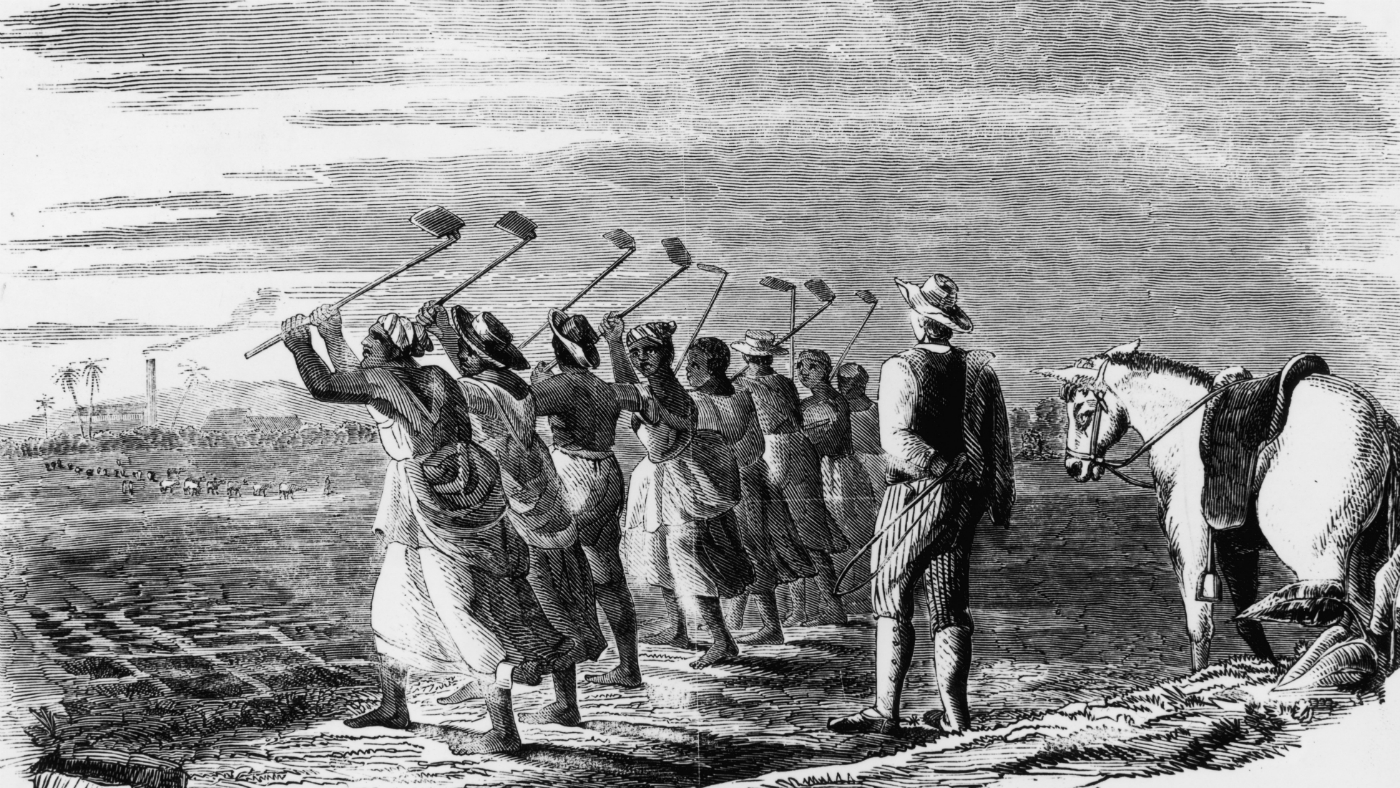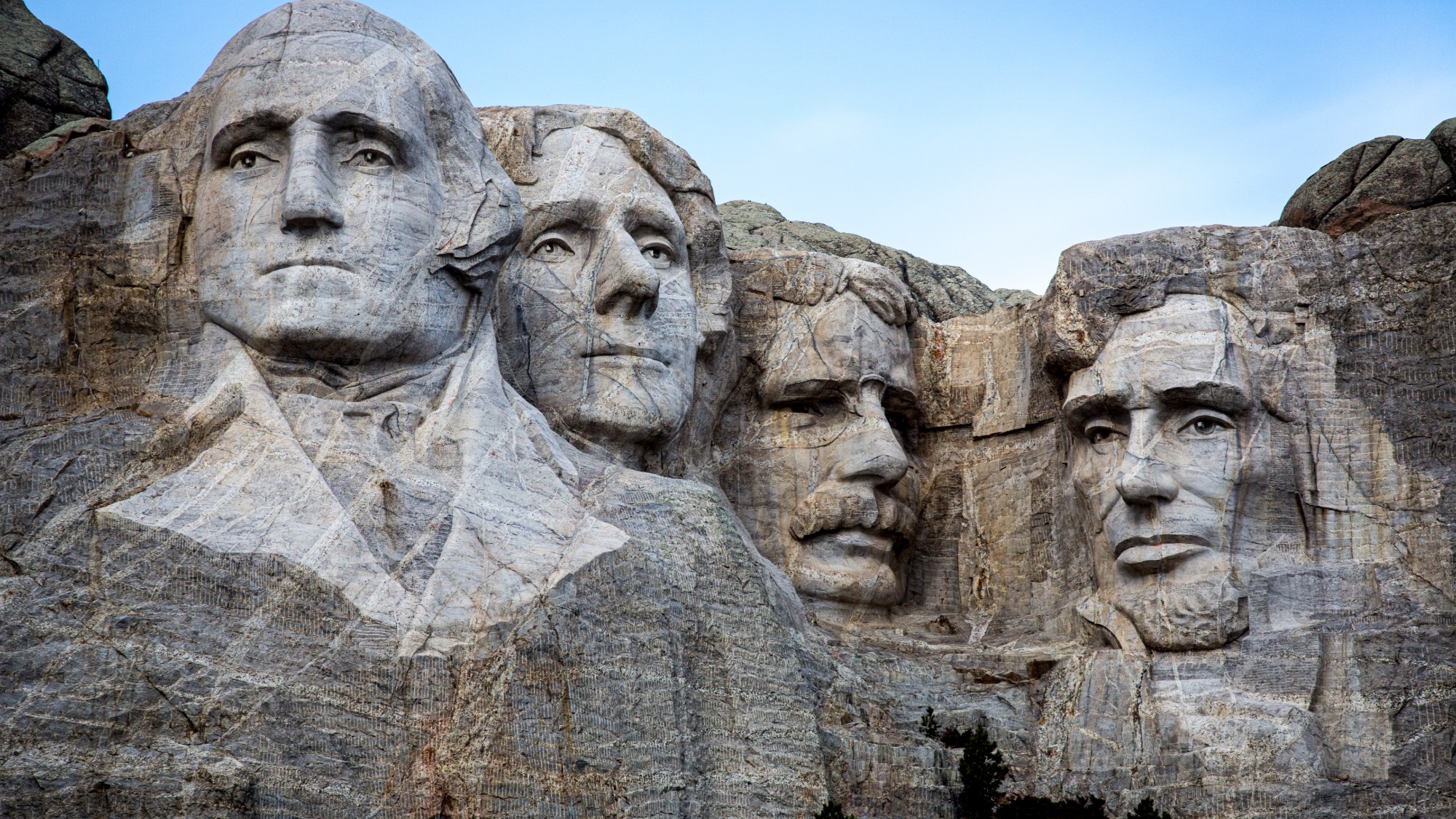Should the UK pay slavery reparations and which institutions could owe money?
Greene King and Lloyd’s of London pledge to pay compensation over founders’ links to human trafficking

A free daily email with the biggest news stories of the day – and the best features from TheWeek.com
You are now subscribed
Your newsletter sign-up was successful
Two of the UK’s biggest firms have pledged to pay compensation to black, Asian and minority ethnic (BAME) communities for their founders’ roles in the slave trade.
Under the terms of the Slavery Abolition Act of 1833, the UK government agreed to pay a total of £20m - about £300bn in today’s money - to 46,000 slave owners in compensation for the loss of their “property in men”. The amount borrowed to fund these payments was so great that the debt wasn’t fully paid off until 2015.
Yet while wealthy slave owners were compensated for their so-called losses, the UK has never paid reparations to the communities affected by the inhumane trade.
The Week
Escape your echo chamber. Get the facts behind the news, plus analysis from multiple perspectives.

Sign up for The Week's Free Newsletters
From our morning news briefing to a weekly Good News Newsletter, get the best of The Week delivered directly to your inbox.
From our morning news briefing to a weekly Good News Newsletter, get the best of The Week delivered directly to your inbox.
However, The Telegraph reports that pub chain Greene King and insurers Lloyd’s of London have promised to pay “large sums” to BAME communities after researchers at University College London discovered the companies were among nine still-operating UK businesses that benefited from the compensation payments to slave owners.
With calls growing for all the named-and-shamed companies to make similar pledges, the row has stirred up a long-running debate about which other UK institutions should offer slavery reparations.
Should the UK pay reparations?
The call for rich countries that benefited financially from slavery to pay compensation has gained momentum in the wake of the Black Lives Matter protests against racism.
A free daily email with the biggest news stories of the day – and the best features from TheWeek.com
The UK, US, France and Switzerland are among the nations with a colonial and slave trade history that has yet to be fully atoned for, according to campaigners.
“To those who accept the notion that the ripples of centuries of forced, unpaid, back-breaking labour (not to mention the psychological, sexual and physical torture that the majority of enslaved African people were subjected to) can still be felt, the argument in favour of reparations makes a simple, moral sense,” says The Independent’s Kuba Shand-Baptiste.
“Some might insist that what his long dead relatives did 200 years ago is no longer relevant, but it’s naive to think that the past has nothing to do with the shape of today,” agrees Reni Eddo-Lodge, author of Why I’m No Longer Talking to White People About Race, in The Guardian.
UN human rights chief Michelle Bachelet this week urged rich nations to make amends for “centuries of violence and discrimination” by paying reparations, the Daily Mail reports.
“Behind today’s racial violence, systemic racism and discriminatory policing lies the failure to acknowledge and confront the legacy of the slave trade and colonialism,” she said.
But some people believe the money that might be spent on reparations could be put to better uses.
Former international development secretary Rory Steward told Time magazine last year he wanted to target UK aid to “the poorest people in the world”, rather than paying reparations in “some weird belief that we’re going to somehow undo 300, 400 years of colonial history by writing cheques to people”.
“I think atoning for the sins of your ancestors is a bit weird. As time goes on, that gets a bit weirder,” he added. “There are many, many countries that are very poor that were never part of empires.”
Others argue that paying reparations for something no living British citizen was part of is unjust and unnecessary.
“The push for reparations also assumes that every minority has a stake in this,” writes Christian Watson in Spiked. “It creates a victim class. For the notion of reparations even to be entertained, the subjects must accept that they are victims.
“Reparations would only further enshrine a mentality of defeatism and beggary into our discourse.”
–––––––––––––––––––––––––––––––For a round-up of the most important stories from around the world - and a concise, refreshing and balanced take on the week’s news agenda - try The Week magazine. Start your trial subscription today –––––––––––––––––––––––––––––––
Which institutions could have to pay?
Academics at UCL have created a database that contains information about everybody who was compensated for their loss of “human property” in 1833.
The database was set up in the belief “that research and analysis of this group are key to understanding the extent and the limits of slavery’s role in shaping British history and leaving lasting legacies that reach into the present”, according to the university’s Centre for the Study of the Legacies of British Slave-ownership.
Researcher Keith McClelland told Wired that between 40% and 50% of the money paid out in 1833 stayed in the UK.
“The Royal Bank of Scotland had its foundations in part in the slavery business, but there are many companies that are connected in some way,” McClelland said.
“A lot of City companies, a lot of people who put their money where we can see where it’s going aren’t putting it in the industrial economy, things like cotton, but in insurance and shipping, things like that.”
The Lloyds Banking Group, Barclays, RSA Insurance and Shipping company P&O are among the other UK businesses that also have links to slavery, the database reveals.
-
 House votes to end Trump’s Canada tariffs
House votes to end Trump’s Canada tariffsSpeed Read Six Republicans joined with Democrats to repeal the president’s tariffs
-
 Bondi, Democrats clash over Epstein in hearing
Bondi, Democrats clash over Epstein in hearingSpeed Read Attorney General Pam Bondi ignored survivors of convicted sex offender Jeffrey Epstein and demanded that Democrats apologize to Trump
-
 Are Big Tech firms the new tobacco companies?
Are Big Tech firms the new tobacco companies?Today’s Big Question Trial will determine if Meta, YouTube designed addictive products
-
 How corrupt is the UK?
How corrupt is the UK?The Explainer Decline in standards ‘risks becoming a defining feature of our political culture’ as Britain falls to lowest ever score on global index
-
 The high street: Britain’s next political battleground?
The high street: Britain’s next political battleground?In the Spotlight Mass closure of shops and influx of organised crime are fuelling voter anger, and offer an opening for Reform UK
-
 Is a Reform-Tory pact becoming more likely?
Is a Reform-Tory pact becoming more likely?Today’s Big Question Nigel Farage’s party is ahead in the polls but still falls well short of a Commons majority, while Conservatives are still losing MPs to Reform
-
 ‘We owe it to our young people not to lie to them anymore’
‘We owe it to our young people not to lie to them anymore’instant opinion Opinion, comment and editorials of the day
-
 Taking the low road: why the SNP is still standing strong
Taking the low road: why the SNP is still standing strongTalking Point Party is on track for a fifth consecutive victory in May’s Holyrood election, despite controversies and plummeting support
-
 Trump officials reinstating 2 Confederate monuments
Trump officials reinstating 2 Confederate monumentsSpeed Read The administration has plans to 'restore Confederate names and symbols' discarded in the wake of George Floyd's 2020 murder
-
 What difference will the 'historic' UK-Germany treaty make?
What difference will the 'historic' UK-Germany treaty make?Today's Big Question Europe's two biggest economies sign first treaty since WWII, underscoring 'triangle alliance' with France amid growing Russian threat and US distance
-
 Is the G7 still relevant?
Is the G7 still relevant?Talking Point Donald Trump's early departure cast a shadow over this week's meeting of the world's major democracies